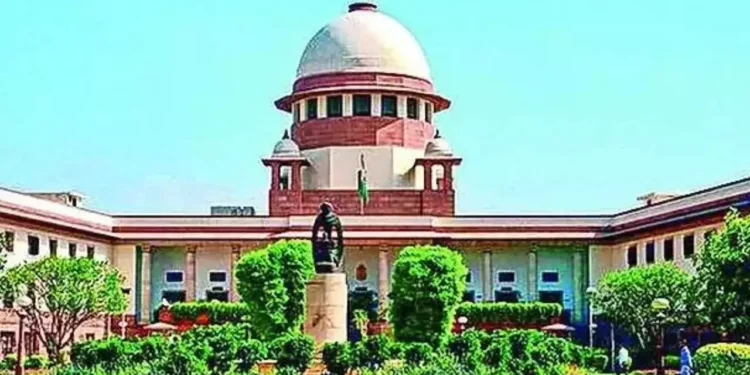Lagatar24 Desk
New Delhi: In a landmark ruling, the Supreme Court on Wednesday stated that holders of Light Motor Vehicle (LMV) licenses can now legally operate transport vehicles weighing less than 7,500 kg without needing an additional, separate license. The ruling came from a five-judge Constitution bench led by Chief Justice of India D.Y. Chandrachud, following appeals by insurance companies who challenged the 2017 decision allowing LMV license holders to drive certain transport vehicles.
The insurance companies argued that the decision, if upheld, could lead to unqualified LMV drivers operating heavy vehicles such as buses or trucks, thereby increasing the risk of accidents and the potential financial burden of insurance claims. However, the bench, which included Justices Hrishikesh Roy, P.S. Narasimha, Pankaj Mithal, and Manoj Misra, dismissed these claims, noting that no empirical evidence was provided to support that LMV drivers cause more accidents when driving transport vehicles under 7,500 kg.
The court referenced its 2017 ruling in the Mukund Dewangan case, reiterating that LMVs and transport vehicles weighing under 7,500 kg are not separate license categories. Additional training under the Motor Vehicles Act (MV Act) will apply only to those aiming to drive heavier transport vehicles over 7,500 kg, including medium and heavy goods and passenger vehicles.
Highlighting the livelihood aspect, the court emphasized that many drivers depend on LMV licenses for their income, allowing them flexibility to drive transport vehicles as part of their profession. This factor led the court to suggest that the government, through the Ministry of Road Transport and Highways (MoRTH), consider amending the law to better clarify licensing requirements.
The Attorney General assured the court that such amendments are under review, though yet to be finalized. The court expressed optimism, stating, “We hope the comprehensive amendments will address the issue.”
Despite concerns raised by insurance companies regarding road safety, the court maintained that the 2017 decision enables the use of private LMV vehicles for hire, such as taxis and cabs, without additional licensing hurdles.









